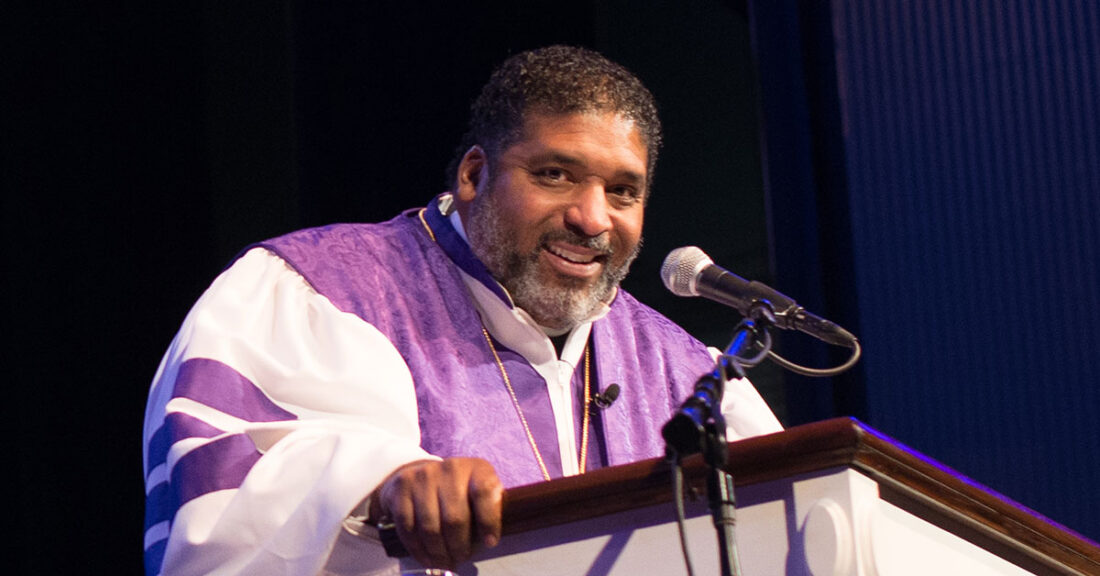KIDS COUNT Network Deepens Strategies for Combating Racial Inequities

William J. Barber II | Photo provided by the John D. & Catherine T. MacArthur Foundation
As more than 150 leaders from child advocacy organizations from across the United States kicked off a recent two-day retreat in Atlanta, social justice activist Rev. William Barber reminded the group that addressing racial inequities in child well-being is a universal imperative.
“[There] has been a deliberate attempt to racialize poverty and turn it into a black and Latino issue to separate and divide,” said Barber, the founder of Repairers of the Breach, who recently was named a MacArthur Fellow by the MacArthur Foundation. “This can keep people of different races from working together for change,” Barber said, and he urged those assembled not to let that happen.
The speech set the tone for the gathering of the KIDS COUNT® network in October. This year’s conference centered on learning best practices and strategies that give children of all race and ethnicities the opportunity to succeed.
KIDS COUNT organizations have made a concerted effort to track inequities in child well-being since the release of the Foundation’s Race for Results: Building a Path to Opportunity for All Children.
Members of the KIDS COUNT network promote effective policies and track the well-being of children to ensure that families are on paths to economic opportunity and communities are safe and healthy for all kids, regardless of race, class or zip code. Every state has a KIDS COUNT organization, as do the District of Columbia, Puerto Rico and the U.S. Virgin Islands.
This year’s gathering helped KIDS COUNT organizations to take specific steps to achieve equity for kids and families, including:
- encouraging buy-in from board members;
- using racial equity impact analyses to leverage policy change; and
- empowering white leaders to become champions in race equity.
Several leaders within the network confessed to wrestling with challenges in presenting data by race.
“Sometimes I can be fearful to disaggregate data because I do not want to propagate stereotypes,” said Nikki Thomas, project manager for research and data at Children’s Defense Fund – Ohio. ”But [workshop] presenters described how aggregating data can protect privilege because the disparities remain hidden and the numbers and gaps are not interrogated.”
Thomas added that she was able to walk away with concrete steps for collecting and presenting data in a way that inspires action and respects the people whose experiences are reflected.
Disaggregating data by race and ethnicity is just one step leaders and advocates should use to craft more equitable policies for children and families. The Casey Foundation’s seven-step Race Equity and Inclusion Action Guide provides a deeper guide to help organizations advance race equity and eliminate systemic barriers to improve the lives of children and families.






